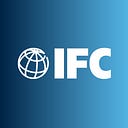Towards More Efficient Vaccination: A Call For Innovation In The Logistics Sector
According to the WHO, as many as half of all vaccines produced worldwide fail to make it into the arms of their intended recipients. While this is a troubling problem, it reflects the complex task of transporting vaccines from the factory all the way to the site of injection.
In some cases, vaccine shipments require multiple flights, land journeys through difficult terrain or even drone transportation. Each segment of the journey, including any intermediate storage period, must be properly managed in order to maintain the timeframe and temperature range specific to the requirements of a particular vaccine.
In fact, figuring out how to effectively distribute and administer a vaccine to neutralize a viral threat is a huge (and often underestimated) challenge.
With an increasing number of Covid-19 vaccines being approved for use by governments around the world, and more in the pipeline, the urgency has shifted from the lab to logistics. How we distribute the vaccines matters: the speed and efficiency with which newly-manufactured vaccines are injected into arms will have a direct impact on the total number of people who die during the pandemic.
Strategic investments in logistics infrastructure, especially in the temperature-controlled logistics segment, will continue to pay dividends long after the urgency of the Covid-19 crisis has receded.
Vaccines are not the only product requiring complex temperature-controlled logistics management. Between 30–50% of freshly-harvested food is lost to spoilage every year, exacerbating the problem of food scarcity in many regions. Much of this waste can be attributed to a shortfall of needed temperature-controlled logistics infrastructure and services.
Experts are already predicting greater food shortages in many fragile areas of the world as a result of the Covid-19 crisis. Investment in logistics infrastructure offers a way to stem the damage from this crisis.
Deploying advanced technologies that provide greater control over temperature variations will reduce food and vaccine wastage. Bringing the newest temperature-controlled logistics innovations into wider use will also help curb needless energy and resource waste.
IFC’s latest Covid-19 response initiative is a Call for Proposals to help governments solve this distribution challenge by leveraging the strengths of the private sector. Eligible projects may involve the scaling-up of logistics infrastructure and equipment or developing business and technological solutions to improve tracking, tracing, or logistics management of vaccine shipments.
The goal of this call for proposals is to source ideas and support the development and financing of private sector solutions for in-country distribution of Covid-19 vaccines in WBG member countries, from the point of entry in the country to the point of actual administration.
Christian Ksoll joined IFC’s Global Infrastructure Upstream Transport team mid-2020. As part of the transport team, he works on logistics projects including on temperature-controlled logistics. Prior to joining the WBG, Christian worked as Global Supply Chain Consultant for a German manufacturing company on smart supply chain and logistics solutions and network optimization. Christian has also spent 10 years in emerging markets in Asia and Africa where he advised governments and the private sector on connectivity, supply chain optimization and transport policy and operations. He also worked as Trade Advisor for the Lao government on the implementation of the Lao Trade and Private Sector Development program.
